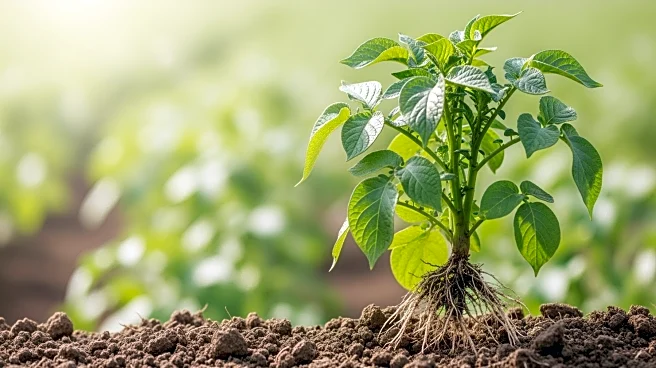What's Happening?
A new potato variety, CIP-Asiryq, has been developed to resist late blight, a disease that historically caused the Irish Potato Famine and continues to affect crops worldwide. Developed by the International
Potato Center (CIP) with Indigenous communities, CIP-Asiryq requires fewer fungicide sprays and cooks faster than existing varieties. This innovation is timely as climate change exacerbates the spread of late blight, threatening smallholder farmers' livelihoods, especially in the Andes.
Why It's Important?
The introduction of CIP-Asiryq is a significant advancement for global agriculture, particularly for smallholder farmers who face economic losses due to late blight. By reducing the need for fungicides, the new variety can lower production costs and improve food security. It also offers potential for both fresh consumption and processing, providing farmers with more market opportunities. This development is crucial in the context of climate change, as it represents a sustainable solution to a longstanding agricultural challenge.
What's Next?
The CIP-Asiryq variety is expected to be shared with potato breeding programs worldwide under international treaty rules, potentially aiding farmers in other regions facing similar challenges. The ongoing collaboration between CIP and global partners aims to develop more blight-resistant varieties, expanding the impact of this innovation. As the COP30 UN Climate Change Conference approaches, the focus on sustainable agricultural practices and crop diversity is likely to intensify, driving further research and development in this area.
Beyond the Headlines
The development of CIP-Asiryq highlights the importance of preserving crop diversity and the role of genebanks in agricultural innovation. It underscores the potential of global collaboration in addressing climate-related challenges and improving food systems. The success of this project may inspire similar initiatives, emphasizing the need for investment in agricultural research and the integration of traditional knowledge with scientific advancements.











